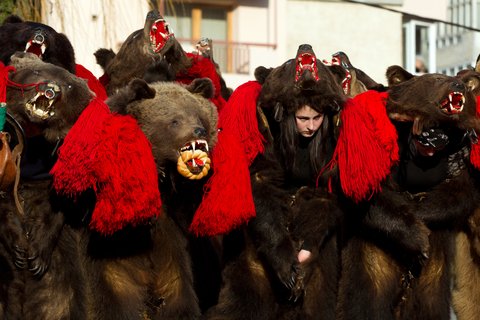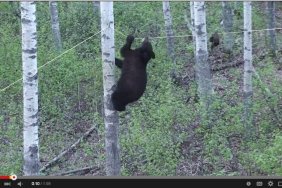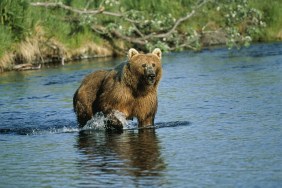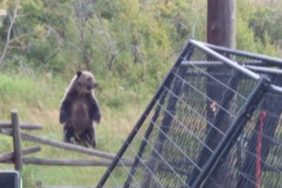There are some traditions that take outdoor lore and holiday ritual to new levels, blurring the lines between hunter and hunted, creating something extra in the hearts and minds of all involved.
There are rituals and superstitions in Eastern Europe that take the meaning of the hunted and the significance of large predators to fascinating levels.
In the Moldava region of Romania the locals perform a winter tradition of the Dancing Bears, which brings communities in the rural Trotus Valley together with ritual and superstition. New York photographer Diana Zeyneb Alhindawi last year documented the tradition in vivid photos.
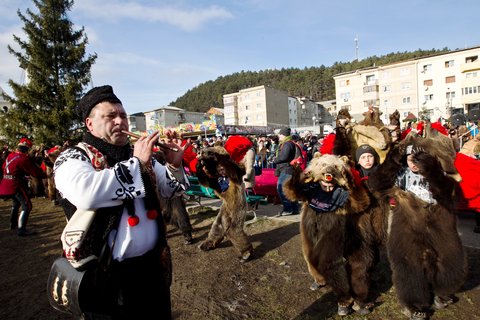
The bears are not actually bears, mind you. But they used to be. In the 1930’s roving Gypsies would bring actual bears on leashes into the villages and receive payment or other goods in exchange for having the young bears walk on villagers’ backs to cure back problems and other ailments.
They would also take grown bears and have them walk on hot metal, which would cause the bears to mimic a dance. This was meant to ward off evil spirits.
Real hunters think of their prey in reverent terms. We tend to think only of Native American tribes as the ones who consider the spirit and the contribution of the animal they kill. Modern hunters in North America find a connection with their prey as well, usually beyond the trophy shot.
Each year between Christmas and the New Year, Romanians will dress in full bear suits – made out of real bears – and perform dance ceremonies and rituals.
But the tradition is fading, with only local governments supporting the tradition in an attempt to keep it alive.
Alhindawi writes that “the bear dance has survived largely due to the efforts of local governments who organize parades and competitions to incentivize the organization of bear troupes, as well as the individual efforts of troupe leaders who grew up with the tradition and hold it close to their hearts.”
There it is: a Great reason to visit Romania this Christmas season. A proud and strange tradition may be fading, and to witness it would be a great tale for any traveler.
Photo credit: Dreamstime.com
